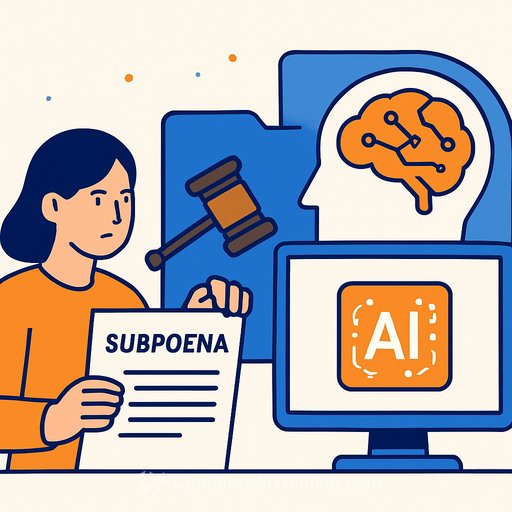Lionsgate Narrows Losses as CEO Says AI Is Expanding the Creative Tool Kit
Lionsgate's latest quarter shows a mixed picture: smaller losses, lighter revenue, and a clear push into AI. The studio, now separate from Starz, is tightening operations while leaning into technology that promises speed and scale without stepping on creators' rights.
CEO Jon Feltheimer put it plainly: AI is already improving productivity, saving costs, and expanding the creative tool kit-so long as guardrails and consent are in place.
The Numbers Creatives Should Know
- Revenue: $475.1 million, down 21.3% from $604 million in the year-ago quarter.
- Operating loss: $46 million, improved from a $100.7 million loss.
- Net loss: $113.5 million, improved from $163.3 million last year.
- Stock: Shares fell more than 7% in after-hours trading.
What Changed in Film and TV
Motion picture revenue fell to $276.4 million from $409.4 million, tied to fewer wide releases. Even so, segment profit improved to $30.5 million from $1.7 million, helped by a tighter slate that included The Long Walk and The Strangers - Chapter 2.
Television revenue dropped to $198.7 million from $416.6 million, with segment profit at $12.5 million versus $24.4 million last year. The studio said some episodic deliveries shifted into the second half of the fiscal year, pushing revenue and margin timing.
AI: Useful Where It Counts (With Guardrails)
In 2024, Lionsgate signed a deal with Runway to train an AI model on its library for internal development. Feltheimer said they're finding new use cases across the business and emphasized the need for consent from rights holders.
The subtext is clear: AI is being used to move faster-from concept to pitch to post-without overstepping IP. For reference on policy and rights, see the U.S. Copyright Office's guidance on AI and copyright here.
Why This Matters for Creatives
Fewer releases and tighter budgets put pressure on throughput. That's your opening: show you can ship high-quality work faster while keeping rights clean and credits clear.
- Set up an AI workflow: pre-vis, concept art, mood boards, alt lines, shot lists, and rough cuts. Document sources and get permissions when training on any style or dataset.
- Keep the human voice where it counts: story, character, and final passes. Use AI to reduce grunt work, not your POV.
- Negotiate your contracts: clarify training rights, data usage, consent, credit, and compensation tied to AI-assisted deliverables.
- Upskill on the tools studios actually use. If you want a curated path, browse role-based options here.
IP Bets: Big Franchises, Bigger Expectations
Lionsgate is betting on known IP to regain momentum: The Hunger Games: Sunrise on the Reaping and Michael, a Michael Jackson biopic, headline the upcoming slate. The studio also struck a deal with Millennium for all future film and TV rights to The Expendables and secured worldwide distribution rights to the next Rambo.
If these land, you'll see more runway for experiments, new pitches, and cross-medium opportunities. If they miss, expect tighter filters and heavier proof-of-concept asks.
The Takeaway
Lionsgate is trimming losses, prioritizing profitable execution, and using AI where it speeds the process without crossing legal lines. For working creatives, the edge is simple: ship smarter, protect your IP, and show you can deliver studio-ready work with a lean setup.
AI won't write your story for you. But it can clear the clutter so your ideas get to screen faster-and cleaner.
Your membership also unlocks:





